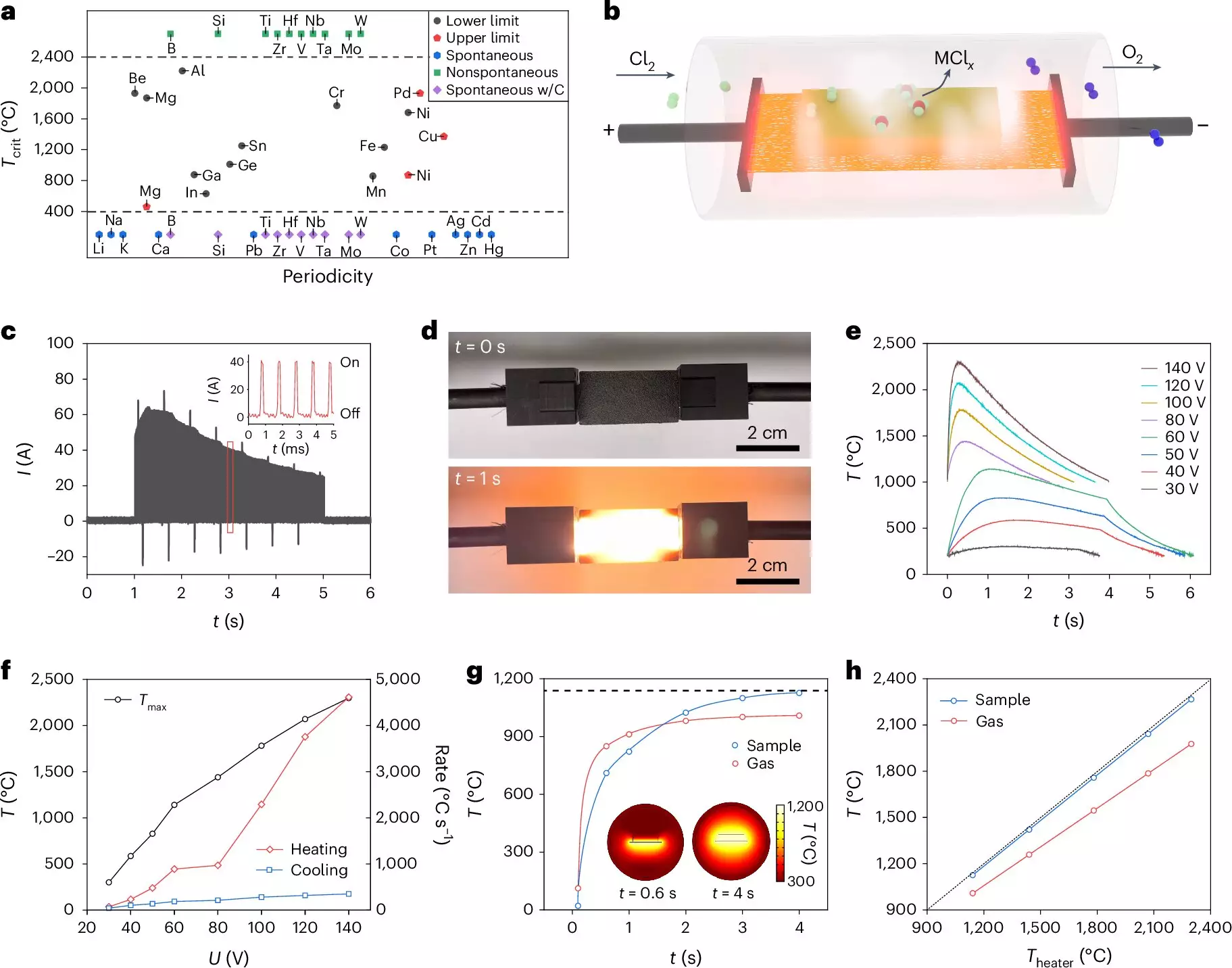In an era where technology proliferates at an unprecedented rate, electronic waste (e-waste) has emerged as a pressing environmental concern. Millions of tons of discarded electronics, laden with valuable metals, end up in landfills each year, posing significant ecological risks. Traditional recycling methods often involve extensive energy consumption, harmful chemicals, and inadequate recovery yields. With these challenges in mind, a research team from Rice University has pioneered an innovative technique aimed at transforming e-waste recycling into a more efficient and eco-friendly process.
Led by James Tour, a prominent figure in chemistry and materials science, the research team has introduced a method that radically enhances metal recovery from e-waste. As articulated by Tour, the novel approach not only minimizes operational costs but also dramatically reduces greenhouse gas emissions associated with conventional recycling practices. This advancement promises to mitigate the environmental degradation commonly associated with mining for raw materials, such as deforestation and water pollution. The team’s findings were detailed in a recent publication in *Nature Chemical Engineering*, underscoring the potential of this method to address both resource scarcity and ecological sustainability.
The breakthrough builds upon Tour’s previous research utilizing flash Joule heating (FJH), a process that employs electric currents to rapidly heat materials, enabling the separation and recovery of metals. With a focus on precision, the researchers combined FJH with chlorination methods to adeptly extract valuable metals—including gallium, indium, and tantalum—from e-waste. Unlike traditional recycling, which is fraught with energy-intensive processes and potentially hazardous byproducts, this innovative technique facilitates quick and efficient metal separation without the use of water, acids, or other harmful solvents.
The results of the research are telling. The team achieved extraordinary purity levels exceeding 95% while maintaining a yield of over 85%. This impressive efficiency positions the new method as a strong contender in the realm of sustainable recycling, offering a blueprint for future innovations in the field.
As electronic devices become increasingly ubiquitous, the demand for critical metals will only intensify. The researchers have expressed optimism that their method could also be adapted for the recovery of lithium and rare Earth elements—valuable resources at the heart of modern technology. Bing Deng, an integral member of the research team, emphasized the urgency of adapting this technique to reclaim additional critical metals from various waste streams, showcasing the versatility of the approach.
The research represents more than just a technological milestone; it embodies a crucial step toward fostering a circular economy that prioritizes resource efficiency and environmental responsibility. The implications of this advancement extend beyond academic discovery, potentially reshaping industry practices and encouraging recycling on a global scale.
The journey toward effective e-waste recycling is fraught with challenges, but the work being undertaken at Rice University provides a promising path forward. By marrying innovative technology with an environmental ethos, the team led by James Tour is not only enhancing metal recovery but also tackling some of the most pressing issues related to sustainability. As the world grapples with growing e-waste and the ecological footprint of mining, this research stands as a beacon of hope, demonstrating that efficient and sustainable solutions for critical metal recovery are not only possible but also achievable through dedication and innovation.

